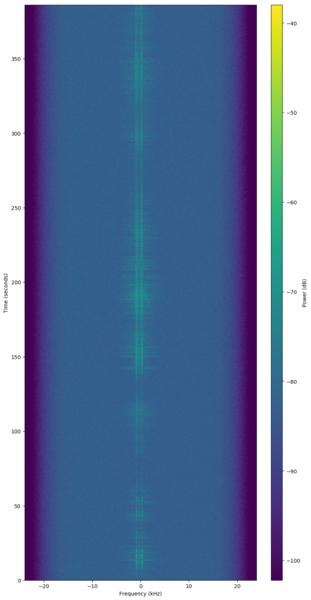Difference between revisions of "DUV"
From SatNOGS Wiki
m (category) |
(waterfall) |
||
| Line 1: | Line 1: | ||
| + | == Waterfalls == | ||
| + | Example waterfalls below: | ||
| + | |||
| + | <gallery mode="packed" widths=310px heights=400px> | ||
| + | File:Waterfall 1521149 2020-01-10T19-06-44.png|[[DUV]] | ||
| + | </gallery> | ||
| + | |||
| + | |||
| + | == SatNOGS Demodulator == | ||
SatNOGS has a built-in demodulator for Data Under Voice (DUV). Here's what a typical DUV demod looks like. | SatNOGS has a built-in demodulator for Data Under Voice (DUV). Here's what a typical DUV demod looks like. | ||
| Line 4: | Line 13: | ||
If you want to know how to decode the telemetry, there may be additional decoding tools available. | If you want to know how to decode the telemetry, there may be additional decoding tools available. | ||
| + | |||
| + | |||
[[Category:RF Modes]] | [[Category:RF Modes]] | ||
Latest revision as of 23:30, 14 January 2020
Waterfalls
Example waterfalls below:
SatNOGS Demodulator
SatNOGS has a built-in demodulator for Data Under Voice (DUV). Here's what a typical DUV demod looks like.
If you want to know how to decode the telemetry, there may be additional decoding tools available.

